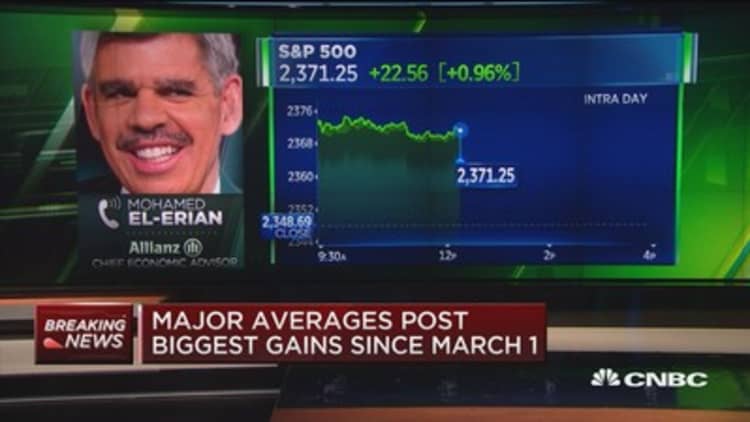
Markets may be ignoring certain risks as they focus on their guiding light, Mohamed El-Erian said Monday on CNBC's "Halftime Report."
"The market is looking past all these little land mines, hoping for tax reform, hoping for deregulation, hoping for infrastructure, hoping for an orderly normalization of [monetary] policy," El-Erian said.
The chief economic advisor at Allianz said markets seem to be less concerned with a government shutdown, as long as they see the legislation that has been promised.
"The critical issue is the market has a North Star and it's important that we get delivery on that, which is the implementation of pro-growth policies by the largest economy in the world, the U.S.," said El-Erian.
On Sunday, U.S. stock futures opened sharply higher as early results from the French presidential election showed Emmanuel Macron and Marine Le Pen advancing to a runoff.
El-Erian said he finds the rally interesting as the result was the one that was largely predicted by pollsters and market watchers.
While Macron's independent En Marche party received the lion's share of votes, El-Erian said that doesn't signal the end of the anti-establishment phenomenon. Populist candidate Le Pen is still slated to go toe-to-toe with Macron on May 7.
El-Erian said, however, that part of the relief seen in the markets is because France did not end up with a runoff between far-right Le Pen and the far-left candidate Jean-Luc Melenchon.
Should Macron win the race, El-Erian said France will be removed from the list of possible sources of systemic shock.
— CNBC's Fred Imbert, Gemma Acton and Vincent Caruso contributed to this report.


